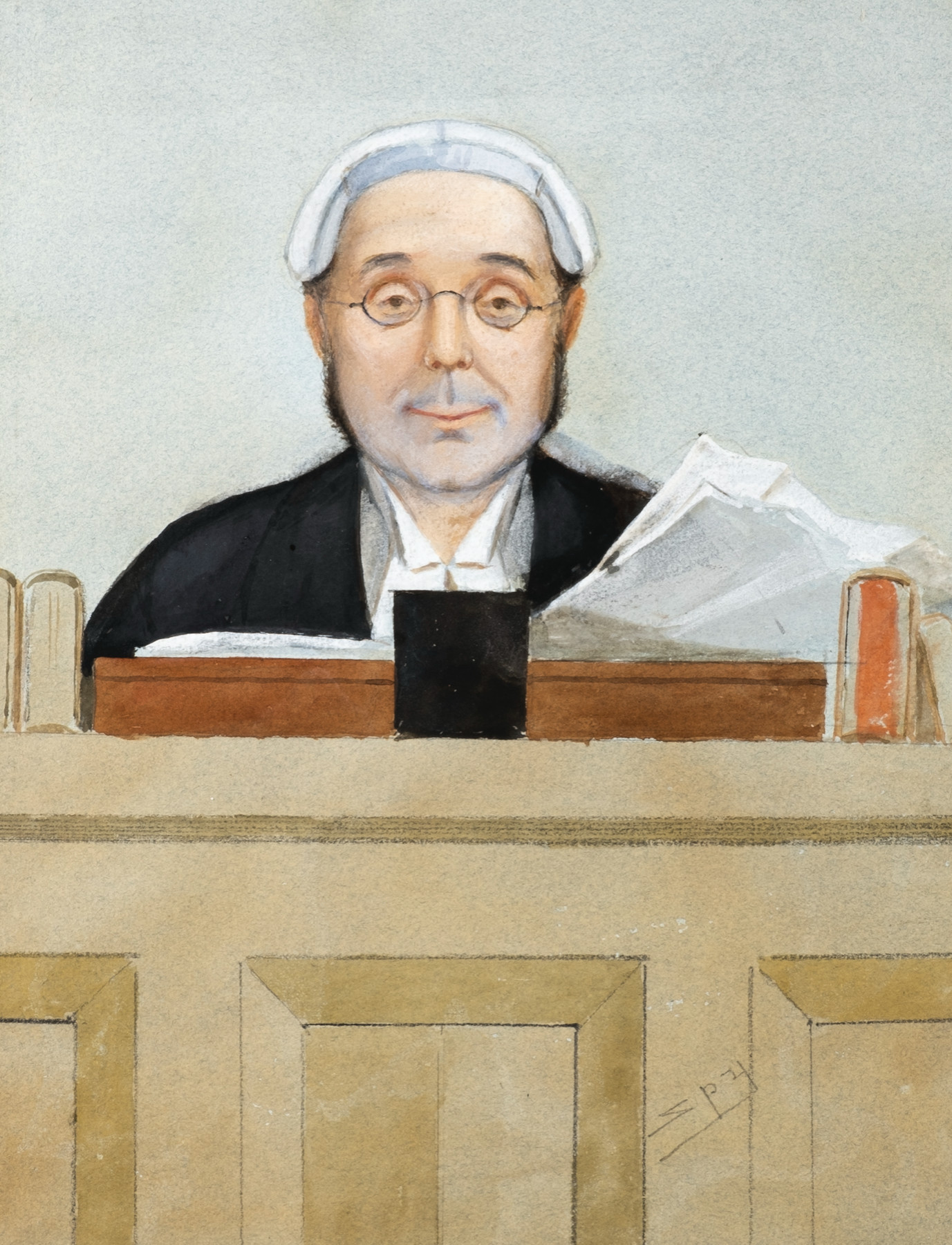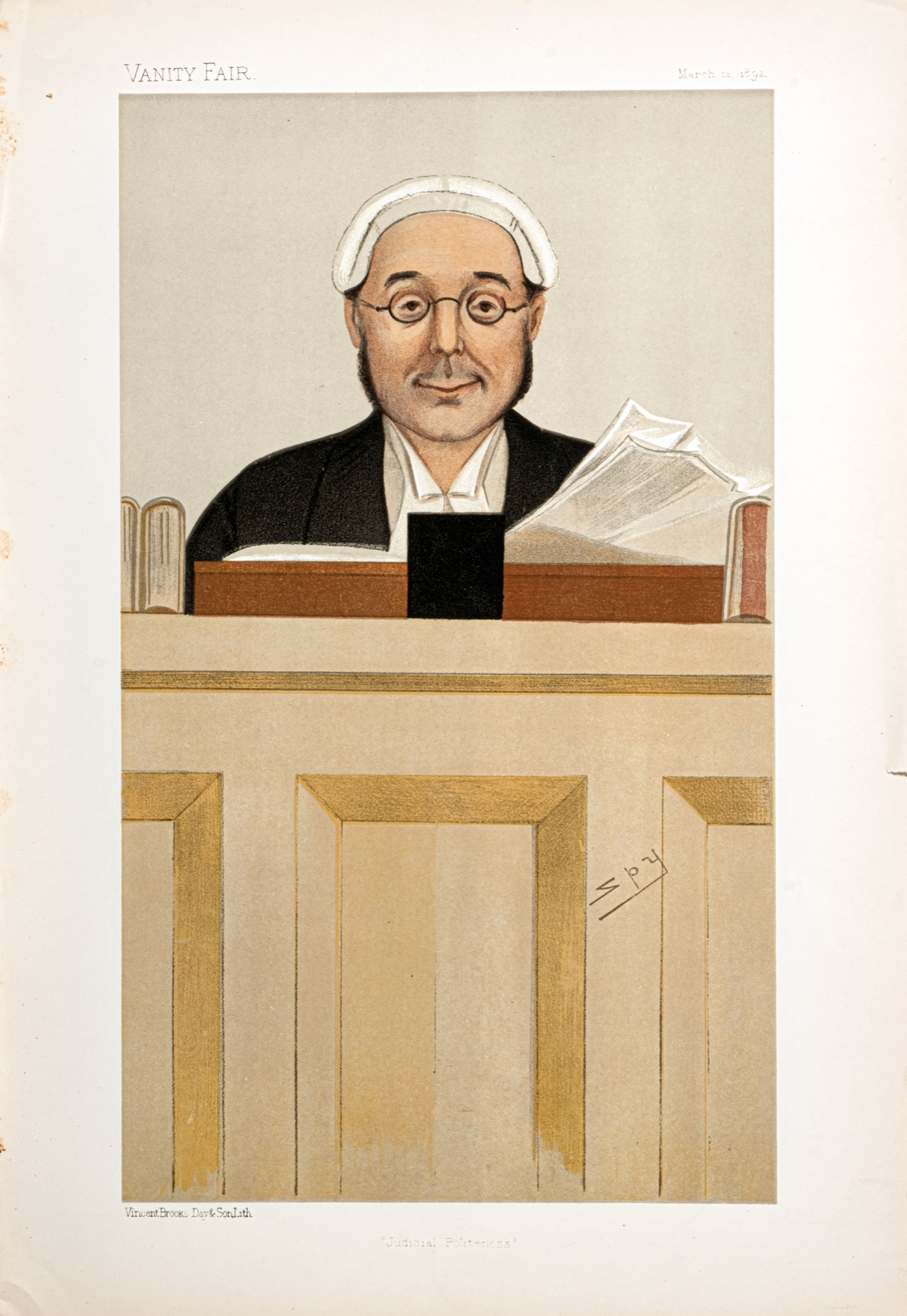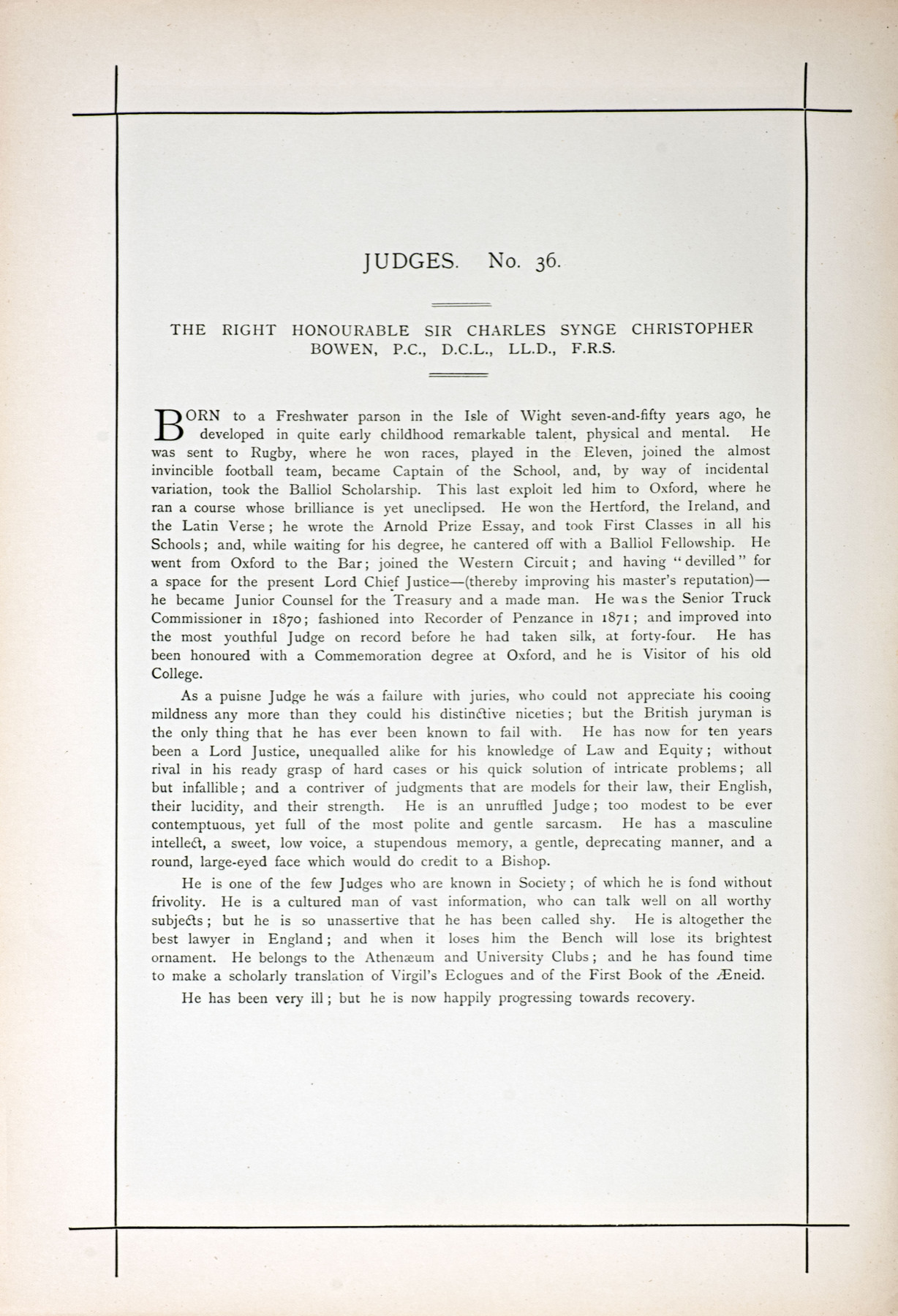


After being called to the bar at Lincoln’s Inn in 1861, Charles Synge Christopher Bowen first rose to prominence as part of the prosecution team in the Tichborne Case, a cause célèbre that captured the public imagination in the late 1860s and early 1870s. In 1879 he was appointed a High Court judge in the Queen’s Bench and in 1882 was raised to the position of Lord Justice of Appeal. In 1893, the year after his portrait appeared in Vanity Fair, he was made a Lord of Appeal in Ordinary and a life peer with the title Baron Bowen. In his youth, he played a single first-class cricket match for Hampshire against the MCC. He is credited with coining the phrase ‘the man on the Clapham omnibus’.
“Born to a Freshwater parson in the Isle of Wight seven-and-fifty years ago, he developed in quite early childhood remarkable talent, physical and mental. He was sent to Rugby, where he won races, played in the Eleven, joined the almost invincible football team, became Captain of the School, and, by way of incidental variation, took the Balliol Scholarship. This last exploit led him to Oxford, where he ran a course whose brilliance is yet uneclipsed. He won the Hertford, the Ireland, and the Latin Verse; he wrote the Arnold Prize Essay, and took First Classes in all his Schools; and, while waiting for his degree, he cantered off with a Balliol Fellowship. He went from Oxford to the Bar; joined the Western Circuit; and having ‘devilled’ for a space for the present Lord Chief Justice - (thereby improving his master's reputation) - he became Junior Counsel for the Treasury and a made man. He was the Senior Truck Commissioner in 1870; fashioned into Recorder of Penance in 1871; and improved into the most youthful Judge on record before he had taken silk, at forty-four. He has been honoured with a Commemoration degree at Oxford, and he is Visitor of his old College.
As a puisne Judge he was a failure with juries, who could not appreciate his cooing mildness any more than they could his distinctive niceties; but the British juryman is the only thing that he has ever been known to fail with. He has now for ten years been a Lord Justice, unequalled alike for his knowledge of Law and Equity; without rival in his ready grasp of hard cases or his quick solution of intricate problems; all but infallible; and a contriver of judgments that are models for their law, their English, their lucidity, and their strength. He is an unruffled Judge; too modest to be ever contemptuous, yet full of the most polite and gentle sarcasm. He has a masculine intellect, a sweet, low voice, a stupendous memory, a gentle, deprecating manner, and a round, large-eyed face which would do credit to a Bishop.
He is one of the few Judges who are known in Society; of which he is fond without frivolity. He is a cultured man of vast information, who can talk well on all worthy subjects; but he is so unassertive that he has been called shy. He is altogether the best lawyer in England; and when it loses him the Bench will lose its brightest ornament. He belongs to the Athenæum and University Clubs; and he has found time to make a scholarly translation of Virgil's Eclogues and of the First Book of the Aeneid.
He has been very ill; but he is now happily progressing towards recovery.”